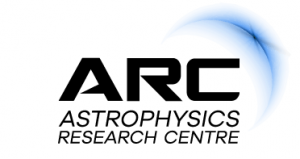Astronomers On Safari
Combining a safari with a group of leading astrophysicists does not happen often but UKZN’s Astrophysics and Cosmology Research Unit did just that when they held another instalment of their extremely popular Cosmology on Safari conference. The conference was attended by local astronomers; as well as astronomers from Harvard University, the University of Cambridge, the University of Sydney, and many other leading institutions who presented their research, discussed problems and during their downtime, went on safari together. The Cosmology on Safari 2019 Conference took place from the 3rd to the 9th of March 2019 and was held at the Anew Hotel Hluhluwe & Safaris, near the popular Hluhluwe-iMfolozi game park.
An enormous amount of data about the Universe has been collected in the past decade. Therefore the conference was held in order to discuss relevant theories, datasets and the future direction of cosmology- the study of how the Universe is expanding. The scientists discussed fascinating topics such as dark matter and dark energy, supernovae, and the large scale structure of the Universe. Since the conference brought together experts in a wide variety of fields, the discussions that ensured were effective at shedding more light on these phenomena as well as generating possible solutions for important questions in astronomy.
The Conference gave South African postgraduate students the opportunity to interact with distinguished international research leaders in astronomy. In particular, students who are being trained to work on UKZN’s HIRAX telescope, engaged in face-to-face collaborations with colleagues based in the U.S., Canada and Switzerland.
“At the conference, a wide variety of topics in cosmology were covered by leading experts. A particular highlight for me was to see the latest results reported by cosmic microwave background experiments, searching for the polarised signal due to primordial gravitational waves” said UKZN astrophysicist and member of the local organising committee, Prof Matt Hilton.
Inspiring Greatness
© University of KwaZulu-Natal: All Rights Reserved






